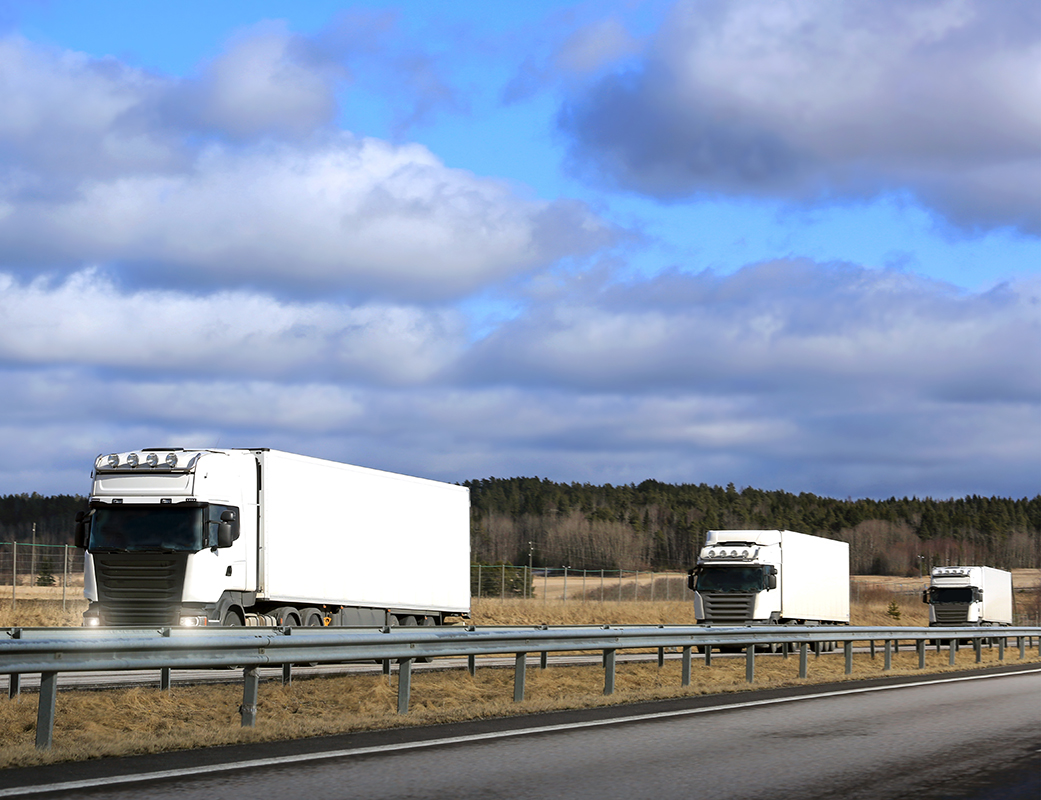New truck platooning system can benefit everyone

Truck platooning has many benefits for the trucking industry. It can improve fuel savings, reduce greenhouse gas emissions, and increase safety. Unfortunately, the U.S. industry is fragmented in many ways, preventing many of the benefits of platooning.
Platooning refers to multiple trucks traveling in convoy guided by the lead vehicle’s driver, which allows the other trucks to safely follow each other in close proximity, like cars on a train. Platooning reduces aerodynamic drag and cuts truck energy use and operating costs. It also can create labor savings in the form of a driver in the second or third truck of the platoon not having to pay full attention to driving by letting the first truck do more of the work.
A recent paper by Bo Zou, associate professor in CME and director for technology transfer and commercialization of the Center for Freight Transportation for Efficient and Resilient Supply Chain, a U.S. DOT-funded University Transportation Center, investigates a platform-based platooning system to maximize the participation of truck platooning considering the stability of the formed platoons that arises from truck preferences of platooning partners. The paper titled “Maximizing truck platooning participation with preferences” was published in the Journal of Transportation Research Part E: Logistics and Transportation Review.
Platoons are mostly formed spontaneously when two trucks are near each other and headed in the same direction.
“I think in some way there should be some kind of coordination involved rather than this ad hoc method. Planned or coordinated platooning will yield much, much larger benefits,” Zou said.
In the paper, the researchers noted that 60% or 70% of the operators are owner operators, which is a single driver who owns and drives the truck. There are only a few big operators like UPS and FedEx. Even big companies that schedule platoons need to consider independent drivers’ preferences for time and energy.
Each one has its own individual behavior when it comes to minimizing their own travel time without regard to others.
“The proposed system involves a platform interacting with individual trucks in a way that reduces truck communication and computation burdens, mitigates truck privacy concerns, and overcomes trucks misreporting private information,” said Limon Barua, the lead author of the paper who graduated from Zou’s research group and is now a postdoctoral associate in the Argonne National Laboratory.
“Using innovative mathematical models with stability characterization, the research sheds light on how individual drivers’ knowledge and preferences influence the dynamics of truck platooning within network settings,” added Pooria Choobchian, another co-author of the paper and a PhD candidate working under the direction of Zou.
The idea is to maximize the participation of the truck drivers in platooning, and, among those participating drivers, they want to have them stable, so they don’t want to leave or break up with their partner and form a new platform with a driver in a different platoon.
To accomplish this, the researchers proposed an efficient two-stage algorithm.
“We tested it in the Illinois road network and saw the benefits and efficiency compared to the traditional integer programming model,” said Zou.
The platform will benefit the entire trucking industry.
“Individual drivers will benefit if they participate in platooning. It’s better off than just driving alone. The overall savings in terms of gasoline and utility is significant, and it still respects the drivers’ preferences. They are not being asked to take a long detour in order to platoon with another truck.” said Zou.
In addition to the trucking industry, society will benefit from the reduced system energy consumption.